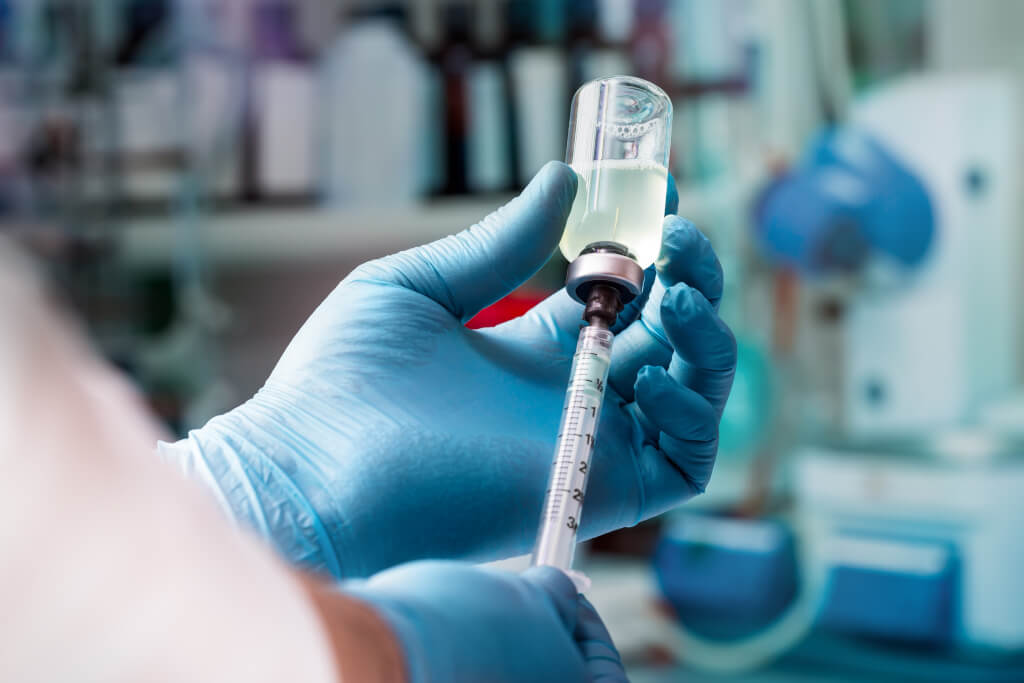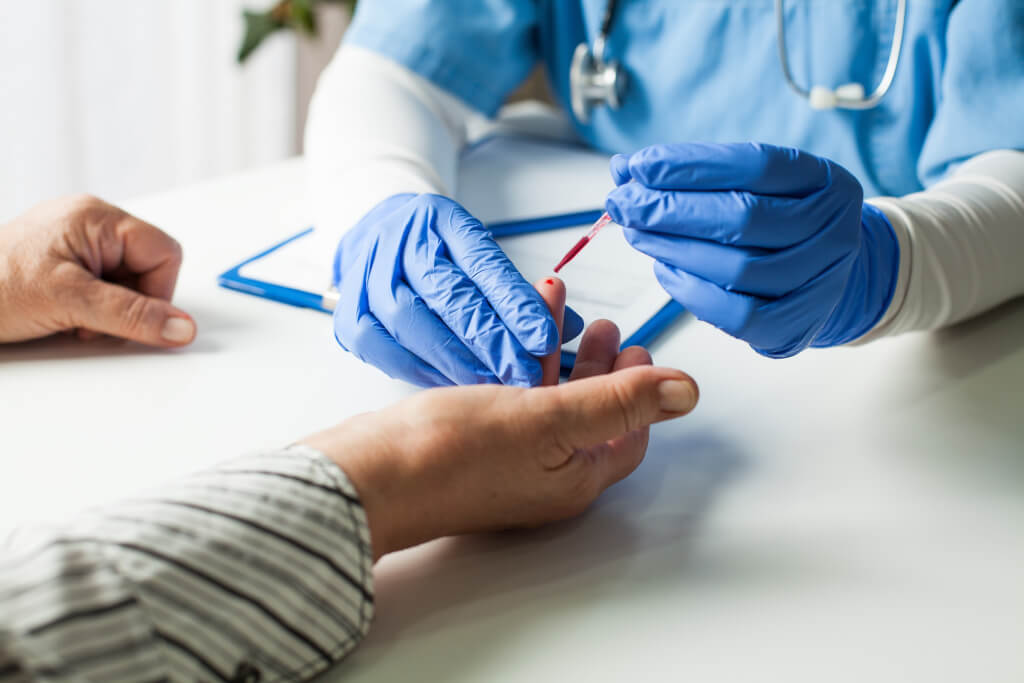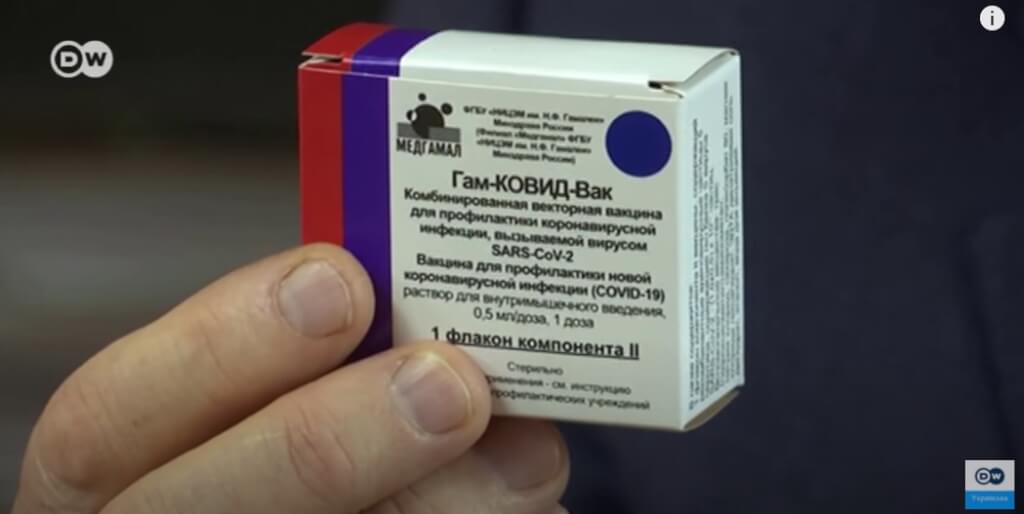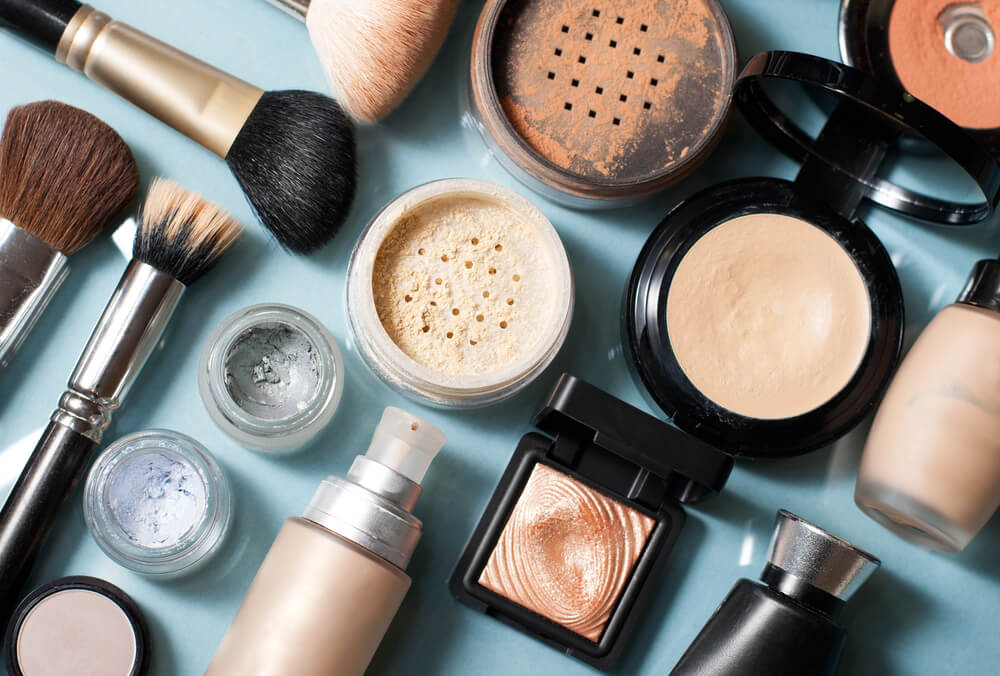More than 100 million people infected with coronavirus: can vaccines stop the pandemic
'29.01.2021'
Source: Lenta.ru
Globally, the number of confirmed cases of COVID-19 has exceeded one hundred and two million, and the number of victims - two million. To stop the pandemic, a number of countries began mass vaccinations, recalls Lenta.ru.

Experts urge to vaccinate everyone who has no contraindications, although they admit: drugs do not protect one hundred percent from infection or from the fact that a person becomes a distributor of COVID-19. About why vaccines act differently on different people, who is better off waiting for vaccination and what will happen if the coronavirus continues to mutate creating more and more infectious strains, says the doctor Biological Sciences, Professor at the School of Systems Biology, University George Mason (USA), Chief Researcher, Medical Genetic Research Center, Russian Academy of Sciences Ancha Baranova.
Side effect
People today are at a loss about vaccines: either everything is fine, or they die from them, or to run for the vaccine, or not. What to do?
Ancha Baranova:
Run and do, but not everyone can do it. In the USA, where I am now, those who would like to really run for the vaccine have no such opportunity. In the United States, two groups are currently being vaccinated according to the plan: medical workers and citizens over 75 years old. They promised to start vaccination for the 60+ group, but they did not say when this would happen. We still have two vaccines on the market in America - Pfizer and Moderna. Considering how many doses of vaccine have been purchased in the country, my turn will not come until summer.
Do you really have queues for vaccines, no one doubts?
There are, of course, anti-waxers. In the United States, especially in the Midwest, funny situations arose: some nursing home is vaccinated. All the elderly were vaccinated, and the medical staff said, "We won't." But there are also directly opposite data. For example, Florida, where there are a lot of elderly people. There, queues formed at the vaccination centers, pensioners actually spent the night in cars in order to get an injection as soon as possible.
On the subject: How to visit elderly relatives and not infect them: doctor's advice
That is, the attitude is different everywhere. Probably, it also depends on the level of education, on the level of public attention. In the past two weeks, it has become clear that vaccination and coronavirus are not the number one topic on our agenda.
All I hear is stay home, get plenty of rest, drink an antipyretic. At the same time, there are practically no sick leave in America. If a person gets sick, even if he has a doctor's certificate, he often runs the risk of losing his job. And people are much more afraid of this than the coronavirus.
It would seem that against this background, on the contrary, everyone should be imbued with the idea of immunization in order not to get sick.
When a person runs out of money, he has no confidence in the future, then trust in the government is also not added. It seems to him that everyone conspired against him, and then there is vaccination, with the help of which, as you know, terrible Bill Gates decided to reduce the population to a minimum.
Radicalization does not require any educational information campaigns. It is enough to simply take away income from a citizen, which the coronavirus did.
All these suspicions and mistrust of vaccinations are not out of the blue. Now in the scientific press there is a lot of information about vaccine side effects, sometimes fatal. Or is this an exaggeration?
The word "side effect" in this context is incorrect, it is more appropriate to say "the effect of vaccination" here. If scientists begin to work on making a good, safe vaccination from the point of view of the layman, which would not cause discomfort to anyone, then its effectiveness will decline. Side effects are a trade balance between efficiency and safety.
There are people who can really get more negativity at the vaccination stage, but they also have a larger gain in the duration of immunity.
Some vaccines have a pattern: the more side effects, the more effective. But this is all up to a reasonable limit, of course. If we compare Sputnik V with vaccines from Pfizer and Moderna (I combined them because they have the same type of platform - mRNA), then the latter will have more adverse events. That is, more people who have received these drugs will feel unwell. Several of my acquaintances who participated in trials of these vaccines felt some undesirable manifestations - temperature, pain in the arm.
It's one thing when you have a headache, your temperature rises for a short time, and it is another thing when you have paresis or develop some kind of autoimmune disease.
It is likely that mRNA vaccines have an effect on neuromuscular transmission or simply on nerves. People I spoke with reported the same effect: pain in the arm after vaccination. Moreover, it does not develop immediately, but on the second or third day after vaccination.
On the subject: Doctors have figured out how coronavirus affects the brain
I have not yet undergone this procedure, so I can only rely on the stories of those who have been vaccinated. They indicate numbness, temporary weakness in the fingertips. And for me - a person who more or less understands how our body works - it all resembles neuropathic pain, that is, those in which the nerve is involved. S-protein is included in vaccines. And this will be my speculation, but there are scientific works that show that this type of protein itself has neurotoxic properties. If it is poured into the body of a person who has a broken blood-brain barrier (barrier between the circulatory and central nervous system. - Approx. "Lenta.ru"), these properties can lead to neuropathic effects.
How do you know if there are violations of this barrier?
This occurs in various neuroinflammations, and if we are talking about old people - in neurodegenerative processes. But it also happens in another way: a person was sick with a coronavirus and did not know about it, was vaccinated and felt neurotoxicity on a larger scale than the average for the population. Because the coronavirus has cut his blood-brain barrier a little. But in fact, such relatively small side effects are normal.
As for Bell's palsy (acute unilateral peripheral palsy of the facial nerve. - Approx. "Lenta.ru"), which was recorded in several patients, is a mysterious thing. Nobody knows where it comes from. It is not so rare in nature and has been recorded earlier with other types of vaccination. It can occur not only after vaccination, but also as a result of some medical manipulations, such as fibrogastroscopy. I would even say that this is not a reaction to a drug, but to an injection, that is, perhaps psychosomatics is partly involved here. The paresis is temporary, after three months, a maximum of six months passes.
On the subject: DNA examination and diagnosis of coronavirus: what is a PCR test and how it works
The only side effect report I was concerned about was the death of a doctor in Florida. After being vaccinated with Pfizer, he developed autoimmune thrombocytopenia. I think that the likelihood of the onset of the disease [in this case] after vaccination is great. But, nevertheless, this is one case in several million, that is, the risk is acceptable. There is a risk in absolutely any of our activities. You can go for bread tomorrow and get hit by a car.
What is known about 23 Norwegians who have died after vaccination?
All of them were over 80 years old, residents of nursing homes. Among this age group, and without vaccination, increased mortality is a natural process. The Norwegians just honestly reported that some of these people died after being vaccinated. But after does not mean as a consequence. So I wouldn't focus on Norway. Compared to the risk of contracting coronavirus and getting complications from it, this is definitely nonsense.
Testers
Does this mean vaccination is at increased risk for older people?
As for security, I don't think so. But the concern is how effective the vaccine will be for them. Most manufacturers have tested the vaccine in the 65+ group and has been shown to work. On this and calmed down. But in older people, age matters. The older a person is, the worse his immune system works.
I believe that in a group of 65-80-year-olds it is necessary to get vaccinated. Between 80 and 85 you have to decide if it's worth it. The selection should be based on baseline health. And for most people over 85, vaccination is practically pointless.
Are there any absolute indications against vaccinations?
I looked at the recommendations Ministry of Health from January 3 via Sputnik V. There vaccination is not carried out for those who are now acutely ill with something, and for those who have exacerbation of chronic diseases, including autoimmune ones. Quite reasonable. But I was surprised to find in the “not recommended” column of patients with HIV, hepatitis B and C. Most of the HIV-positive are taking antiretroviral therapy, they do not have an active virus in their blood, they are not contagious. Their immunity is in order.
On the subject: Coronavirus or not: could you have had COVID-19 without knowing about it
As for hepatitis, it is generally strange, because about 70 percent of hepatitis C and many cases of B have not been identified in our country. That is, people get sick, but do not know about it. It turns out that if a person has an official diagnosis, then the coronavirus vaccine is contraindicated for him, and another in exactly the same condition, but without a diagnosis, can. I would understand if there was some kind of control before vaccination, it was required to show tests for HIV, hepatitis ... Otherwise, what is the medical sense of such prohibitions?
That is, everyone needs to be vaccinated?
As a biologist, I believe that you should not be vaccinated during any infections, even a banal ARI. Not for those who test positive for coronavirus. If, for example, you donated blood for antibodies and found immunoglobulins M in it, this indicates that your immune response continues to form. That is, the body is in contact with the virus, even if your PCR test is negative. Perhaps the virus is hiding, sitting in the intestines or somewhere else. This condition is called persistence. In this case, it is also impossible to vaccinate.

If IgG antibodies are present, but IgM antibodies are not, this is a postcoid state. For many, it is not associated with any side effects in the sense of a long covid. But in the presence of IgG, it makes no sense to get vaccinated. Better to give up your turn for the vaccine to someone else.
There are also some special situations. For example, serious illnesses - immunosuppression, multiple sclerosis, etc. Usually in such cases, people are sent to the attending physicians, and they say that they do not know either. Nobody wants to take responsibility. Gradually, experience will accumulate, and the recommendations will become more confident, but for now every second person is a testing scientist.
The vaccine is not for everyone
WHO predicts an impending epidemiological catastrophe. The vaccine is now available only in wealthy countries, third world countries are overboard. What do you think about this?
Eh, this is pain. There is competition for resources among vaccine manufacturers. Consumables are needed to make a drug. There are a certain number of them in the world. Here's one small example. Ready-made vaccines are tested for pyrogenicity, that is, for the absence of temperature and other inflammatory reactions to the drug, using the blood of horseshoe crabs. This invertebrate animal lives on the coast of North America. Without a pyrogenic test, a vaccine preparation cannot be launched into production; each batch must be tested. But horseshoe crabs are "milked" in the summer, now is not the season for this. The old blood supply is not unlimited.
And there are no alternative ways to test vaccines?
There are approved recombinant proteins that replace horseshoe crabs' blood. But there are also a limited number of them.
In conditions of scarcity, politics is often used. Do you think the Pfizer company, if America knocks on their door with a request to deliver an additional batch of vaccine, will say in response: "No, we have already agreed with Africa"?
Indeed, now the European countries, the USA and Canada are pulling over the small resources that they have. But this is not to say that there are absolutely no vaccines in developing countries. Over time, when the situation stabilizes, there will be enough drugs for everyone.
Here another nuance can be noted. Because of the scarcity, vaccination can begin to be perceived as an element of inequality. There is a danger that people will be radicalized because of this, since the availability of vaccines is a very important issue for everyone.
You said that sooner or later there will be enough vaccines for everyone, that is, there is no disaster. But the question is how long the vaccine will last. If half a year or a year, then a cycle is formed. Until the drug reaches Africa, everyone in Europe needs to be revaccinated again.
I don't think it will be that way. Manufacturers already understand that revaccination will be required, and now the process of adapting production to the increased demands is underway. While no one knows for sure the validity of the vaccines, all the predictions that are announced are the same as the predictions of fortune-tellers. Since we are optimists, let's think that the vaccine should be enough for a year of protection.
On the subject: What loss of smell says about the course of COVID-19: the opinion of scientists
But I can imagine that the drug may have to be regularly adapted to new strains of the virus - as in the case of the flu. Then it can really happen that the third world countries will lag behind. While Europe will start receiving the vaccine, tentatively, from the British strain, there will still be a standard option in Africa. This is not a very good situation either in epidemiological or ethical terms. But gradually the production will be adjusted, and we will keep up.
Is the hypothesis that sooner or later new strains of coronavirus will elude vaccines, is it confirmed?
Regarding the British variant of the virus, which, according to forecasts, may become dominant by the spring in the United States, and therefore in other countries, everything is already sad.
Pfizer has done a test to neutralize this variant of the virus with the serum from the vaccinated. The drug is still working, but its effectiveness has decreased three to four times.
This surprised me as I predicted a 30 percent drop.
There are no hard data on Brazilian and South African strains yet. But my biggest concern is the Brazilian variant of the virus. It was found in Japan in people who flew in from Brazil. Scientists are very excited, because in this case the mutations are even more profound than in the British version. Such a strain should be less well neutralized by existing antibodies. In Brazil, a case of a second illness was recorded: a nurse who had previously been ill with a "standard" covid in a mild form again became infected with the Brazilian strain. The second time, the disease was more severe. But data on the residual effectiveness of vaccines against it is not yet available. We are waiting, we are worried.
That is, you will almost certainly have to come up with new vaccines?
I want to reassure you that both vaccines and natural contamination are not in black and white. This is not the case when immunity is either there or not, it cannot act like a light bulb: on - off. Due to the accumulated mutations of the virus, immunity does not decrease immediately, but very smoothly, gradually.
Relatively speaking, if earlier antibodies in the blood of a particular person were able to cut out a million particles of the virus in 1 milligram of blood, then there will be 300-400 thousand. That is, with new strains, the protection will not completely disappear, the viral load will gradually decrease.
On the subject: What is saturation and why is it important to control it in COVID-19
Coronavirus vaccines are modular. If mutations really need to change them, this can easily be done in two weeks. The question is whether the updated vaccine would be considered a new drug. In theory, if a pharmaceutical manufacturer makes any changes to the product, clinical trials need to be re-conducted.
But this is not the case with influenza vaccines, which are updated every season?
For influenza - yes, this is not done, because we usually have a vaccine for the new season in September-October. If you test it, then they just won't have time to vaccinate, so the procedure was swept under the rug in an organized manner. Perhaps this will happen with the coronavirus.
Riddles of immunity
Could vaccines not work in some people? What will it depend on?
First of all - from the age of the person, from his life history. For example, in people who have undergone chemotherapy, especially against lymphoproliferative diseases (leukemia. - Ed.), the response to the vaccine may be two times lower than the average for the population. That is, it is possible to immunize a person, it may even be safe, but the effectiveness will be low.
Is there a chance that the vaccine will not work on the average citizen without obvious health problems?
They are minimal, but I know people who have not been vaccinated. Moreover, these are two different people. They participated in clinical trials of a Pfizer vaccine. After testing, blood was donated for antibodies to S-protein. They got zero and thought they were just out of luck: they ended up in the control group who were given a placebo.
On the subject: Coronavirus on food: how to properly wash vegetables and fruits
But in late November, Pfizer conducted an ethical de-blinding of the study. All participants were sent letters with information about what exactly they received. They wrote to my friends that they had a real vaccine. They ran to the laboratory again and again got the result - zero antibodies. One person did nothing, and the other one started calling the pharmaceutical company and asking questions. There they sympathized that he was unlucky. They advised to stay at home as much as possible and wear a mask.
Are there any versions of why this could happen?
It so happens that in some cases, for no apparent reason, vaccines do not cause an immune response, why this happens - we do not know, the effect of immunity is still a mystery to us.
The network has a forum for volunteers vaccinated with Sputnik V. There are messages from people who have received zero antibodies. But about the reason for this, we can only build versions. A person may not admit on the forum that he, for example, had oncology, or even not know about his tumor.
As for the specific situation with my acquaintances, I have personal assumptions. Pfizer has very strict requirements for storage and transportation of the drug - the temperature in the refrigerator with the vaccine must be minus 70 degrees.
When the clinical trials were carried out, the complicated logistics were still being debugged. Perhaps there was a failure somewhere and the cold chain was disrupted during transportation. People could get a defective vaccine, in which mRNA, due to improper storage, could simply fall apart. But this is my private opinion, now it is simply impossible to verify it.
Can a consumer understand by some indirect evidence that the vaccine is spoiled?
No. At the end of December, there was history in Germany. A batch of Pfizer was delivered to the medical warehouse. All vaccine containers are equipped with memory thermometers. An anomaly was recorded in the boxes that were intended for deliveries to Bavaria - the temperature changed from minus 70 degrees to minus 1. It is clear that the drug most likely deteriorated. The Germans reported the temperature jump to the world and disposed of this batch of vaccine.
On the subject: Twenty Important Facts Many Don't Know About Coronavirus Infection
Now imagine a person who is responsible for logistics in a medical facility. Does he admit that there was a temperature anomaly? Considering that work is now very tight, knocking on yourself is a serious demotivator.
When I consider all of these human factors, it becomes very significant that something will go wrong.
So the best thing a consumer can do is take an antibody test a week after vaccination?
I would suggest passing it in three to four weeks so that I don't get up twice. If the vaccine is normal, then you can evaluate your immunity by the level of antibodies. It is not just their presence that is important, but the number, well, at least three times higher than the cutoff level. But there are people who are 10 times higher. Then a month later another retake. In general, keep track of the level and do not relax.
The official guidelines say that antibody tests are useless for the sake of curiosity; an ordinary person still cannot understand them. Why?
The logical advice to do nothing is correct, as it saves people money and reduces anxiety. But, in my experience, the population's anxiety still cannot be removed in this way, it can only be done by turning off the TV. The difference between the level of antibodies in humans is different, and accordingly, the level of protection is different. It's nice to know where you are, even if it's measured with a cap.
But not everyone can be convinced of the effectiveness of their vaccination with an antibody test. I love the Novosibirsk "Vector" dearly, I had high hopes for their vaccine "EpiVacCorona". I recommend it to my mother, who is 84 years old, because this drug is less reactogenic, there are practically no side effects expected from it. But the more I learn about the nuances of the vaccine, the more uncomfortable I become.
In the case of Sputnik, you have at least some control over your condition. Having passed the test for antibodies, found that you do not have them, you can start taking some action - galloping to Germany for Pfizer or isolating yourself more thoroughly. However, antibodies to the Vector vaccine cannot be measured with a conventional test. This test is available in the company's laboratories, but it is not commercialized. And how can a person know if he is protected or not?
On the subject: Children and COVID-19: what scientists have learned over the year of the pandemic
In the ranking of effectiveness, mRNA vaccines and vector vaccines are in the first places. An inactivated vaccine will soon be registered in Russia. Many people have high hopes for it, they say that it is safer, as it is prepared using technology proven over the years. Do you agree?
I have no data on the Russian vaccine made by the Chumakov Institute. But the effectiveness of a similar drug by the Chinese company Sinovac was just over 50 percent.
I'm not a fan of inactivated vaccines. Firstly, all flu vaccinations are built on them, which is also about 50 percent effective. That is, vaccination does not guarantee that you will not get sick.
And secondly, it's the production itself. Do you know how these vaccines are made? A huge cell reactor with a volume of, say, 20 thousand liters is taken. In it, on special substrates, cells of a person or a Syrian hamster are placed on which this vaccine is grown. And they launch a virus there, which multiplies there intensively. Then the virus is deactivated using temperature or chemicals. After cleaning, the killed inactivated virus is packaged and offered to people in the form of a vaccine.
On the subject: Suicidal thoughts and panic attacks: how COVID-19 affects the brain and psyche
What is the most vulnerable link in this scheme? It's very simple: if this reactor loses its nut and goes to the suburbs, can you imagine what will happen? In the world, only a few countries are preparing such a vaccine against covid: Russia, China, Kazakhstan. Naturally, they all say that they have everything under control in terms of security, the mouse will not slip through. But other states initially abandoned the production of inactivated vaccines for precisely these reasons.
If you need to be vaccinated repeatedly, is it better to do it with different types of vaccines?
Scientists are now trying to answer this question. It seems that mRNA vaccines rule in this regard. They are reusable, they do not have an immunogenic delivery system, so they can be injected as much as you like. According to "Sputnik V" there is very vague intelligence data that immunity to the adenoviral vectors used in it does not seem to be developed. Or it is produced, but not at all.

However, in any case, the effectiveness of "Sputnik" will fall with repeated use. That is, in principle, it is a one-time vaccine. If the Gamaleya Institute provides conclusive evidence that this is not the case, I am ready to admit that I am wrong. As for the vaccine from the Chumakov Scientific Center, it’s like with the flu, the same scheme. I don't see any problems.
I want to warn everyone that if the revaccination becomes permanent, it is not yet clear under what conditions it will take place. Now in almost all countries it is free for the population. But on a permanent basis, big states - Russia, the United States, India - are unlikely to pull it off. For example, in the United States, vaccination, on average, by the most modest standards, will cost 30-35 billion dollars.
But if now many do not want to get free vaccinations, they are unlikely to go to get them for money.
If people are left with some choice, then maybe they won't. But we have a bunch of voluntary things, without which there is nothing. For example, travel by metro is voluntary. The ticket costs 60 rubles. To buy it or not is everyone's personal business, you can walk. But this is difficult to do if you live in Altufevo and work in Cheryomushki. By and large, everything is permitted that is not prohibited. Anyone can say that they will not get vaccinated, and the employer will say that then they will not hire him. And then?
On the subject: US chief infectious disease specialist warned of a new surge of COVID-19
Infected, but not fatally
Will the virus start mutating under the influence of different vaccines?
Excluded. The virus can change under the influence of some mutagens that we specifically feed it. For example, it can mutate with favipiravir and remdesivir. A vaccine is not a mutagen, but a piston that accelerates the movement of evolution in the direction we need. I just told you this phrase and thought about it. Technically, yes, vaccines are not a mutagen at all. And in practice, they still play a role in the evolution of the virus.
Almost all anti-toxic vaccines are two-part vaccines. Now a light version of vaccination is offered - one injection at a time. What if this will push the evolution of the virus?
I do not think the version with light vaccines is good and correct, but this will definitely not affect mutations.
Half vaccination is a kind of pulling a hedgehog onto the globe. The globe is big, and the hedgehog is small. Most likely, this will affect the effectiveness of vaccination.
There is no scientific data on this yet, but I think that from a conditional 90 percent it will fall to 65, if I'm lucky. But I see an additional danger in this:
Citizens who have received one dose of the vaccine and then become ill will tell everyone that the vaccine does not work. And this can undermine the very idea of vaccination.
Now in different countries they are actively discussing the idea of introducing vaccine passports. Will it help slow down the pandemic?
In my opinion, it is a senseless and merciless idea, with medical benefits in it with a gulkin's nose. Because there will be a lot of people who get vaccinated and get a passport for, say, two years. And their vaccination will expire in a year or even earlier. Well, and there is one more thing: most likely, the vaccinated will be able to safely spread the virus.
How does this happen?
The vaccine stimulates the production of antibodies in the blood. Well, and the virus, as we know, is respiratory; for a start, it loves to multiply on the mucous membranes - mouth, lips, nose. And while he is sitting there, antibodies interfere with him minimally. They are connected when the virus decides to make its way into the lungs. This usually happens a few days after infection. And before that, everything happens either asymptomatically, or with a sore throat and a slight cough. A person does not pay attention to this, believing that he is under the protection of a vaccine.
If a person picks up a virus on the mucous membranes, becomes an asymptomatic carrier, and then goes to other places and spreads this virus, then we will get an increase in the epidemic due to vaccination.
Can you get infected from the vaccine itself?
Definitely not, do not even doubt. Vaccines are the best coronavirus solution we currently have. Let's still use the benefits of civilization and get at least some protection.
The material is published for informational purposes only, does not constitute medical advice and does not replace medical advice. ForumDaily Woman is not responsible for any diagnosis made by the reader based on the site's materials, as well as for the consequences of self-medication, and may not share the point of view of the author or expert.







